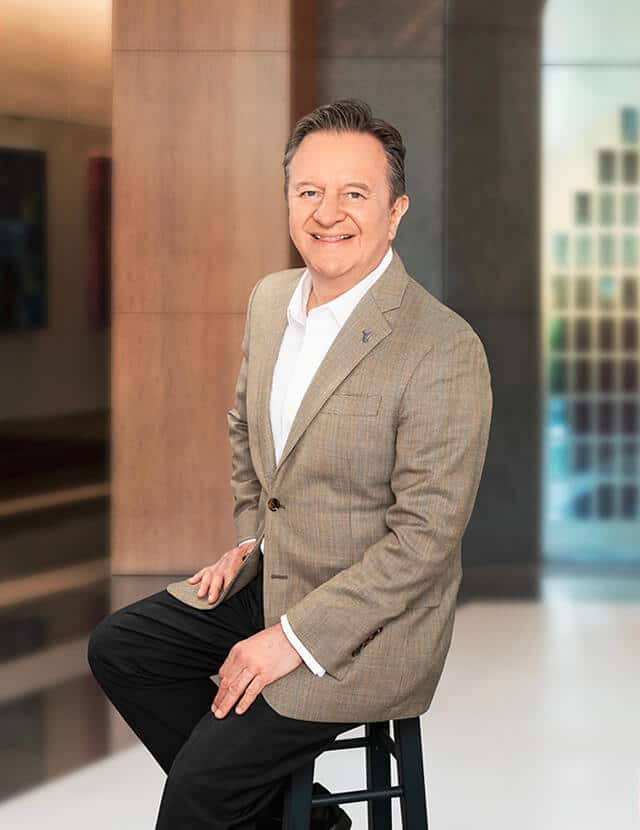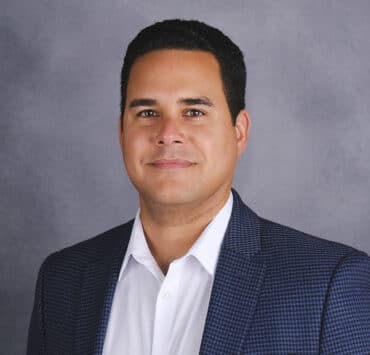|
Getting your Trinity Audio player ready...
|
On hot summer days in Mexico City where he was raised, Jorge Pliego was brought by his father to work for the bank where the latter ran the leasing and factoring units. In those days before personal computers and searchable databases, Pliego’s job was to refile paper documents crammed into banker’s boxes. “Open them up and see what’s in there and classify the documentation according to a series of guidelines provided,” he describes. “I spent two months fixing the filing of ten years’ worth of documents.”
These summer days introduced Pliego to the skills of paying close attention to details and the importance of meeting deadlines as key elements to adding value, which is what he does today as CFO of Improving Enterprises, an IT services company offering consulting, software development, and training.

He primarily oversees financial strategy and risk management, working with Improving’s management team crafting strategy on mergers and acquisitions. “Beyond thoroughly understanding the numbers, we make M&A successful by generating timely insights and analyses, and by clearly understanding risks and opportunities on the potential partners,” Pliego says.
Pliego lauds Improving’s M&A team and operation for its well-defined strategy, including its choice of great partners, practicing exceptional due diligence, evaluating joint growth opportunities, and mitigating risk. “Even if their numbers are great, if we feel the team we’re looking to acquire is not a great fit for Improving, we don’t move ahead,” Pliego explains. The team’s selectivity and discipline pay dividends, evident in the number of partners who’ve joined Improving and stayed on beyond their earnouts.
“Bringing structure and order to chaos is something I like to do.”
Jorge Pliego
Pliego explains Improving’s approach to mergers and acquisitions as holistic, a strategy some companies dismiss. Some, he says, overemphasize the financial side of the equation. While profits and existing contracts are important, Improving’s approach, though more time consuming and laborious, centers around the soft side of the potential partner, which in the end results in very solid, longer-term relationships.
“We, for the most part, purchase companies a fraction of Improving’s size. Even if we make a very wrong decision, 10 percent of our revenue is the worst of the downside. It limits exposure,” Pliego says.
It’s not just the size that attracts Pliego but also how well these companies complement Improving. Some are geographically desirable, others offer practices Improving does not, and some possess an attractive customer base. “Our holistic approach also allows us to learn from every single acquisition and integration we do, and then apply those learnings to the next one in a way that we are always generating incremental value,” Pliego remarks.
Pliego was educated abroad, studying business management at ITAM in Mexico City and earning an MBA from European University in Barcelona. He later completed postgraduate studies at MIT. Shortly after obtaining his business degree, he took a job with Procter & Gamble, a move that shaped his career because it was not only a great company but a great school. There, his bosses trusted him with high profile initiatives. “This trust accelerated my personal and professional maturity,” he recalls.
Trust is a theme woven throughout Pliego’s career and a pillar of Improving’s mission. Trust, he says, produces speed and results in smooth effective execution. “The way it happens in our company is that we always aim at clearly communicating and establishing needs and expectations on each other. Once these are defined, you don’t have to check, double-check, or second-guess anyone. Trust drives the way we work,” Pliego explains.
Pliego brought the trust and confidence he gained at P&G to Sara Lee in Mexico, where he built its apparel division from scratch, securing import permits and establishing logistics for brands like Hanes and Champion. At first it was a bit of an adjustment, coming from the ultrastructured environment of P&G where it seemed there was a manual for every facet of the business. In Mexico he was operating within a maquiladora structure, in which a facility run by a foreign company exports its products to the country of origin.
“You can only sell small amounts locally, otherwise you’d have to send it back to the US and then reimport it,” Pliego says. In a time before free trade agreements, even garment labeling was a hassle.
Working in this fast-paced environment forced Pliego to hone the skills he would use later in the dynamic, if not chaotic, IT industry. “I honestly do well in environments that are unstructured,” Pliego explains. “I like to work in a bit of chaos. Bringing structure and order to chaos is something I like to do. In this technology space, businesses grow very quickly, and you don’t have time to set up all procedures from A to Z, or all your manuals.”
Pliego heads up a team of forty and employs a proactive leadership style, encouraging team members to work outside their comfort zones, be curious, and bring joy to their work. “The joy piece to me is something very critical. It’s not necessarily having fun, but about connecting your personal purpose with the values, mission and vision of the company. A huge sense of joy comes as a result of this,” he says. “That’s one element where I’m looking for positives, even in conflicting, tough situations. If you don’t find a way to enjoy what you’re doing, then you’re likely going to be living in frustration and disappointment.”

